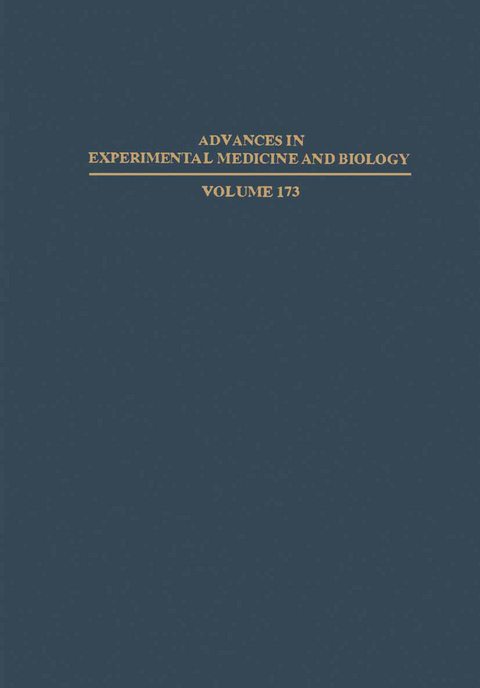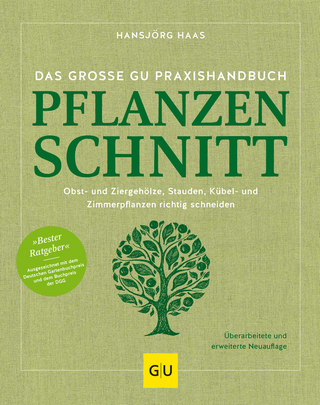
Molecular Biology and Pathogenesis of Coronaviruses
Springer-Verlag New York Inc.
978-1-4615-9375-1 (ISBN)
Molecular Biology of Coronaviruses.- Overview.- Biochemistry of Coronaviruses 1983.- Viral Proteins and Maturation.- Organization of the IBV Genome.- Proteolytic Cleavage of the Peplomeric Glycoprotein E2 of MHV Yields Two 90K Subunits and Activates Cell Fusion.- Coronavirus Maturation.- In Vitro Assembly of the Murine Coronavirus Membrane Protein E1.- Characterization of Viral Proteins Synthesized in 229E Infected Cells and Effect(s) of Inhibition of Glycosylation and Glycoprotein Transport.- Defective Replication of Porcine Transmissible Gastroenteritis Virus in a Continuous Cell Line.- Structural Characterization of IBV Glycoproteins.- Use of Monoclonal Antibodies to Assess Antigenic Relationships of Avian Infectious Bronchitis Virus Serotypes in the United States.- Monoclonal Antibodies to the Three Classes of Mouse Hepatitis Virus Strain A59 Proteins.- Antigenic and Polypeptide Structure of Bovine Enteric Coronavirus as Defined by Monoclonal antibodies.- Plaque Assay, Polypeptide Composition and Immunochemistry of Feline Infectious Peritonitis Virus and Feline Enteric Coronavirus Isolates.- Assembly of 229E Virions in Human Embryonic Lung Fibroblasts and Effects of Inhibition of Glycosylation and Glycoprotein Transport on this Process.- Amphotericin Inhibits Coronavirus SD, SK and A59 Growth.- Electron Lucent Structures Induced by Coronaviruses.- Virus Specific RNAs: Structure and Replication.- Cloning and Sequencing the Nucleocapsid and E1 Genes of Coronavirus MHV-A59.- Nucleotide Sequencing of Mouse Hepatitis Virus Strain JHM Messenger RNA 7.- Transcription Strategy of Coronaviruses: Fusion of Non-Contiguous Sequences During mRNA Synthesis.- Studies on the Mechanism of RNA Synthesis of a Murine Coronavirus.- Glycoprotein E1 of MHV-A59: Structure of the O-linked Carbohydrates and Construction of Full Length Recombinant cDNA Clones.- DNA Sequencing Studies of Genomic cDNA Clones of Avian Infectious Bronchitis Virus.- The Genome of Transmissible Gastroenteritis Virus (TGEV).- Pathogenesis of Coronaviruses.- Overview.- Biology of Coronaviruses 1983.- MHV-A59 Pathogenesis in Mice.- Detection of MHV-A59 RNA by In Situ Hybridization.- Virological and Immunological Aspects of Coronavirus Induced Subacute Demyelinating Encephalomyelitis in Rats.- A One Year Study of Coronavirus SD Infection in Mice.- Immunosuppression with Cyclophosphamide Does Not Prevent Demyelination or Result in Uncontrolled Viral Replication in Coronavirus SD Infected Mice.- In Vivo and In Vitro Models of Demyelinating Diseases — VIII: Genetic, Immunologic and Cellular Influences on JHM Virus Infection of Rats.- Restricted Replication of a Temperature-Sensitive Mutant of MHV-A59 in Mouse Brain Astrocytes.- Replication of Murine Coronaviruses in Somatic Cell Hybrids Formed Between a Mouse Fibroblast Cell Line and either a Rat Schwannoma Line or a Rat Glioma Line.- Persistent In Vitro Infection with Mouse Hepatitis Virus 3.- Characterization of MHV-A59 Persistently Infected Cells.- Fine Specificity and Genetic Restriction of T Cell Clones Specific for Mouse Hepatitis Virus, Strain JHM.- The Immune Response to Mouse Hepatitis Virus: Genetic Variation in Antibody Response and Disease.- Pathogenic Differences Between Various Feline Coronavirus Isolates.- Expression of Feline Infectious Peritonitis (FIP) Coronavirus Antigens on the Surface of Feline Macrophage-Like Cells.- Role of Circulating Antibodies and Thymus-Dependent Lymphocytes in Production of Effusive Type Feline Infectious Peritonitis after Oral Infection.- Interactions of Porcine Enteric Corona-Virus TGEVwith Macrophages and Lymphocytes.- Effect of Stomach and Gut Juices on Infectivity of Low and High Passaged Strains of T.G.E. Coronavirus: Properties of a Virus Mutant Resistant to Inactivation by Stomach Juice Obtained by Cycles of Survivor Selection in Tissue Culture.- Pathogenicity of Mouse Hepatitis Virus, MHV-2cc, from a Persistently Infected DBT Cell Line.- The Pathogenesis and Age Related Susceptibility of OC43 Virus in Mice.- Failure to Detect Coronavirus SK Antigen in Multiple Sclerosis Brain Tissue by Autoradiography.- Antiviral Action of Interferon in the Bovine Species: Study In Vitro and In Vivo.- The Effects of Mouse Hepatitis Virus Type 3 on the Microcirculation of the Liver in Inbred Strains of Mice.- Contributors.
| Erscheint lt. Verlag | 25.11.2012 |
|---|---|
| Reihe/Serie | Advances in Experimental Medicine and Biology ; 174 |
| Zusatzinfo | XIII, 409 p. |
| Verlagsort | New York, NY |
| Sprache | englisch |
| Maße | 170 x 244 mm |
| Themenwelt | Sachbuch/Ratgeber ► Natur / Technik ► Garten |
| Medizin / Pharmazie ► Medizinische Fachgebiete ► Mikrobiologie / Infektologie / Reisemedizin | |
| Medizin / Pharmazie ► Studium | |
| Naturwissenschaften ► Biologie ► Mikrobiologie / Immunologie | |
| ISBN-10 | 1-4615-9375-1 / 1461593751 |
| ISBN-13 | 978-1-4615-9375-1 / 9781461593751 |
| Zustand | Neuware |
| Haben Sie eine Frage zum Produkt? |
aus dem Bereich


